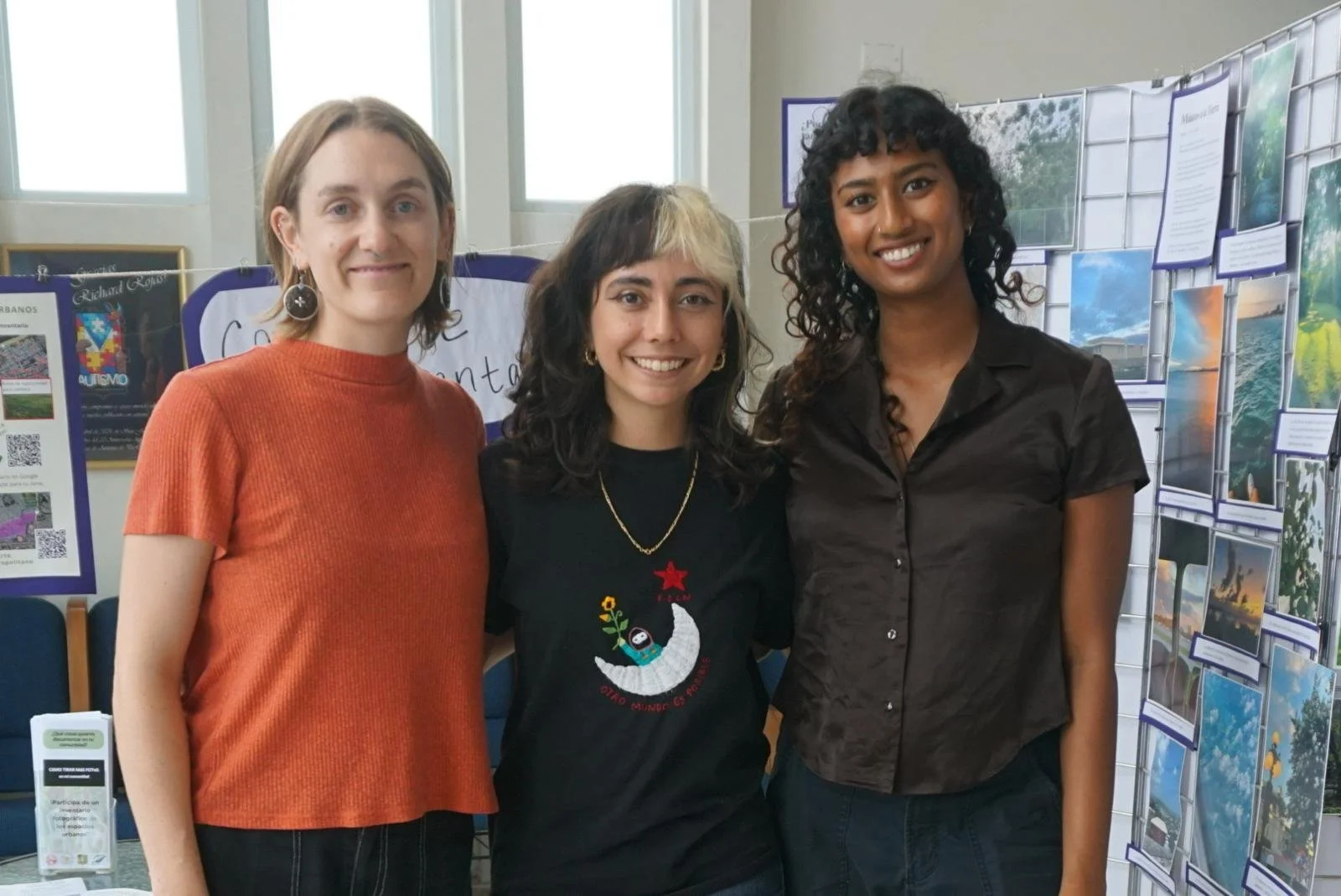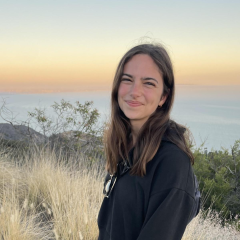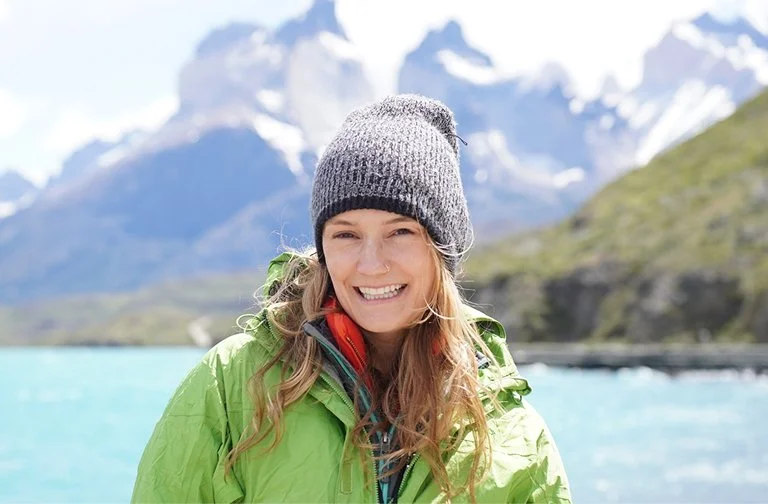NATURA Early-Career Fellowship
About the Program
The NATURA Early-Career Fellowship Program is a paid 6 or 15-week opportunity for research and networking at collaborating network institutions (click here for participating locations. Please note that locations are not restricted to the those listed, but can be arranged by agreement between the applicant and potential host). Early Career Fellowships applicants can also apply to work with one of NATURA’s Thematic Working Groups, however proposals must directly support the objectives of the TWG. The goal of the fellowship program is to 1) Provide opportunities for students, early-career academics, and practitioners to explore nature-based solutions for urban resilience by spending time in residence with other networks; 2) Support greater depth of analysis or synthesis by extending time of interaction; 3) Support practitioner-researcher interactions through exchanges among worldwide networks.
Potential EC Fellows MUST….
Have access to their own laptop computer for the duration of their fellowship. NATURA will not provide this.
*Fellows may connect with their Host regarding a laptop rental, however, this must be done no less than 1 month before their fellowship start date
Coordinate their own visa application process
*NATURA and your Host Institution can assist by providing needed documentation as requested
Coordinate their own lodging arrangements
Please Note: US National Science Foundation requirements will not permit activities that do not include a US-based institution or network (i.e., fellowships involving, for example, two European networks). The NATURA review committee can only consider applications that propose an exchange involving a US-based network (either a US-based fellow or a US-based host) to ensure compliance.
Host an Early-Career Fellowship
Host and support a student, early-career academic, or practitioner at your Institution or site (virtually) who is interested in nature-based solutions for urban resilience. If interested, please fill out the quick survey by clicking the button below, and help us identify potential funding to support non-US early-career researchers or practitioners to participate in exchanges.
Apply to be a Fellow
Program Details
What’s included in the Fellowship? NATURA can contribute up to $1,500 for travel costs, $500/week for lodging, and $200/week for meals during the time of your exchange. If through your budgeting you find that your trip will require more funding, you must find this funding through personal means or through your home or host institution. Graduate Students will be awarded a stipend of $500 per week in addition to covering the costs of lodging, meals and travel. Stipends for other non-Graduate Students or Postdoctoral Fellows can be negotiated individually with NATURA on a case by case basis. Please note that stipend checks will not be disbursed weekly. For 6 week fellowships you can expect 1-2 checks and for 15 week fellowships you can expect 3-4 checks. NATURA expects to fund two 6-week and two 15-week learning exchanges per year for graduate students and/or postdocs, and two 6-week Fellowships for early-career faculty and/or professionals.
What’s expected of Fellows? Fellows should plan for specific, concrete products or outcomes, which might include but are not limited to: blog posts or summary papers, podcasts, academic publications or presentations, focused reports, webinar or live presentations based on their work with the host network (view the expected outputs here). Fellows will also become members of the NATURA Early-Career Network, and serve as ambassadors for the further development of the Early-Career Fellowship program.
Virtual Fellowship: NATURA will consider applications for virtual fellowships if the coronavirus pandemic restricts travel.
Deadline: PASSED
Current and Past Fellows
Shahryar Sarabi
Shahryar Sarabi is an Assistant Professor in the Information Systems in the Built Environment (ISBE) Group at Eindhoven University of Technology and a visiting scholar at the Urban Systems Lab at The New School. His research primarily focuses on designing information systems to improve the human-nature relationship and facilitate the planning of Nature-Based Solutions. He is working with Timon McPhearson at the Urban Systems Lab, where he aims to explore how extended reality technologies can promote the co-construction and recognition of nature’s diverse values.
Charlotte Stijnen
Charlotte Stijnen is a PhD student at Utrecht University in the Netherlands and has conducted her 15-week fellowship at the Urban Systems Lab (the New School) in New York. Charlotte’s research focus was inclusive governance and planning for urban nature-based solutions (NBS). Within this topic, she was primarily interested in unpacking the trade-offs that arise during the planning implementation and usage of urban NBS. An expected output of this fellowship is a co-authored journal paper on the results of the case study expected to be published at the end of 2024.
Salvador Menesis
Salvador Menesis is a PhD student at Arizona State University in the United States and has conducted his 15-week fellowship with the SETS Convergence Network in Georgia. Salvador is studying in the US with a J1 visa sponsored by the U.S.-Mexico Commission for Educational and Cultural Exchange (COMEXUS) through the Fulbright program so the Executive Team deemed it a cross-cultural opportunity. His fellowship aimed to enhance Atlanta's resilience, contributing to the broader goal of understanding interconnected social-ecological-technological systems (SETS) dynamics crucial for the success of NBS and fostering a more sustainable urban environment. Their primary goal was to explore how a nature-based waste reduction policy can significantly contribute to enhancing urban climate action, with a specific focus on managing Atlanta's organic waste stream.
Morgan “Ro” Smith
Morgan “Ro” Smith is a graduate student at Arizona State University in the United States and is conducting her 6-week fellowship with NovelEco at Trinity College Dublin in Dublin, Ireland. Her fellowship seeks to answer the question– how can interdisciplinary collaborations between the arts and sciences accelerate the implementation and impact of NBS in urban areas? The final objective is to assess the practical impact of integrating artists into the implementation of NBS and expected outputs include a comprehensive set of best practices, creation of a presentation and summary paper, a presentation of findings, creation of a new thematic working group, and a creation of a Fullbright proposal.
Shruti Jadala (she/her) is an incoming Erasmus Mundus Joint Masters student in Climate Change and Diversity: Sustainable Territorial Development (CCD-STeDe) at the University of Padova and Simón Bolívar Andean University. Her work and interests lie in climate justice and inclusive mitigation, most recently as a Community Energy Fellow with the U.S. Department of Energy, where she supported grant implementation for subsidized solar energy in low-income communities.
Izzy Pacenza is passionate about environmental sociology through community-based qualitative research and an environmental justice lens. She is currently a project coordinator at the Environmental Data & Governance Initiative, where she works to safeguard vulnerable environmental data and information provided by the federal government.
Margot Mattson is a geographer that uses mixed-methods approaches to study social-environmental issues of land use change, water quality, and urban vulnerability.
Project Description: As NATURA-IRES alumni and Early Career Fellows, we explored pathways for community and youth-led documentation of green urban spaces through the use of photo essays. We partnered with our host organization, the University of Puerto Rico, Rio Piedras, to support the objectives of the Urban and Community Forest Program to create a holistic management plan for the Rio Piedras watershed in San Juan. Through workshops with high school students, a community photo exhibition, and platforms designed for documentation of urban ecosystem services and infrastructure challenges, we explored opportunities for art and storytelling to facilitate public participation in discussions around urban futures.
Franklin “Frank” Kirimi
Franklin “Frank” Kirimi is an early-career professional working with a partner network called the Kounkuey Design Initiative in Kenya and is conducting his 15-week fellowship with the Pratt Institute in NY, US. His fellowship seeks to assess the social impacts to vulnerable communities in planning and development of green infrastructure, assess tools and mitigation measures in addressing issues of social justice and inequity to vulnerable communities, and create strategies for equitable and inclusive green infrastructure planning. Outputs of this fellowship are anticipated to be a summary highlight of participatory and inclusive GI/NBS strategies, creation of a methodical approach towards elevating community aspirations and indigenous knowledge, and leveraging “innovation labs” as part of the NATURA Urban Informalities thematic working group.
Rebecca Tiernan
Arizona State University student who worked with Pippin Anderson at University of Cape Town in South Africa.
Rebecca Snyder
Arizona State University student working with Marcus Collier at Trinity College Dublin.
Alannah Hofemeier
Alannah Hofemeier works for the network of practitioners PlanAdapt and has conducted her fellowship at the Urban Systems Lab (the New School) and Barnard College. She has worked on exploring participatory methods for the practice of NBS. The methods include scenario-building and visioning for the contexts of informal settlements in Indonesia and Kenya. For this research, Alannah has conducted interviews with practitioners involved in the selected case studies. This fellowship helps bridging NBS research with practice and leverages lessons from successful cases of NBS implemented in an inclusive manner in low-income communities.
Mariana Hernández Montilla
Mariana Hernández Montilla worked with Marcus Collier (Connecting Nature Network) in spring 2022 for 15 weeks (March-June 2022). She conducted a systematic review to explore risk and opportunities for transformative urban adaptation in the Global South, focusing on the use of nature-based solutions in participatory planning processes.
Pablo Arturo López Guijosa
Pablo Arturo López Guijosa worked with Jennifer Rae Pierce of the Urban Biodiversity Hub. During his six-week fellowship in spring 2022, he worked with the Global to Local TWG, taking a lead in completing the first draft of the policy brief they produced.
Katinka Wijsman
Assembling Coasts: Climate Change, Resilience, and the Politics of Belonging
A fellowship with Dr. Niki Frantzeskaki at the University of Utrecht, Netherlands.
Laura Costadone
Analysis of social environmental justice on blue-green space access using social media data in a Mediterranean small island state
The implementation of nature-based solution (NbS), defined as actions to sustainably manage and restore ecosystems, is a key priority to improve livelihoods, address societal challenges and mitigate climate crisis1. The adoption and implementation of NbS is, however, often still limited due to resistance among stakeholders or institutional and cultural barriers2. Examining routes to improve the uptake of NbS is critical to successfully addressing multiple societal challenges. A better assessment of beneficiary preferences, in terms of ecosystem services and benefits, could help in overcoming these barriers and be used as a powerful justification for the implementation of NbS. Information on where, how and why people interact with nature could help distinguish which ecosystem services or aspects of the environment are of public interest3 and should be prioritized in restoration and conservation efforts through the implementation of NbS.
Laura Costadone is a PhD student in the Department of Environmental Science and Management at Portland State University, US.
Melissa Ingaruca Moreno
Transformative Potential of Urban Nature-Based Solutions (NBS)
This project seeks to develop a SETS-based theoretical framework to assess the potential of urban NBS innovations to radically transform the modernist urban design regime and create pathways towards “good Anthropocenes”. How can we assess the transformative potential of urban NBS innovations taking into account a SETS approach? What are radical worldviews (and constituent paradigms) that challenge undesirable SETS relationships of the modernist urban design regime and offer alternative SETS relationships for the knowledge production and material production of urban NBS? The project will also apply the theoretical framework of SETS-based transformative potential to identify radical innovations of knowledge production of NBS that engage with emerging cognitive technologies (AI, XR, sensors).
Melissa Ingaruca Moreno is a design-led urban researcher applying socio-ecological science to study urban transformations.
Clair Cooper
Investigating the role of social media data in the evaluation of relationship between nature-based solutions and health
Despite numerous studies documenting considerable health benefits from greenspace provided by nature-based solutions (NBS), knowledge of pathways that directly link the two remain contested due to the lack of causal evidence (Van Berg et al.,2015). A recent paper by Dumitru et al., (2020) suggests a lack of studies has led to claims about the impacts of NBS on health may be over emphasised or generalised based on the analysis of a limited number of case studies. To further our understanding of the relationship between different types of NBS and health outcomes, natural experiments that examine the causal nature of relationships between the quantity and quality of different types of NBS, general and specific health outcomes are needed for different population groups at a smaller scale such as neighbourhood district. The objective of this learning exchange is to work in collaboration with researchers at the Urban Systems Lab to pilot an approach to ascertain if social media data that relates to public health can be used as a proxy for health outcome indicators, and to establish if there is a relationship between different types of NBS and health outcomes within cities.
Clair Cooper is a PhD student in the Department of Geography at Durham University, UK.














